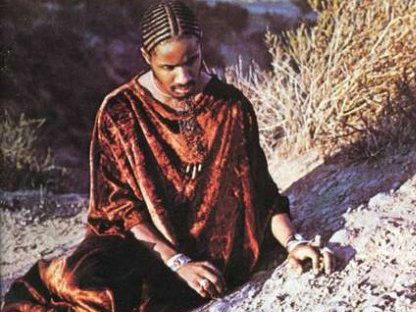BLOG: What makes a great synth sound?
Why playing is as important as programming

Want all the hottest music and gear news, reviews, deals, features and more, direct to your inbox? Sign up here.
You are now subscribed
Your newsletter sign-up was successful
Future Music's list of the top 40 synth sounds of all time has sparked a fair bit of debate - as much because of the artists it doesn't feature as those it does.
I'm not going to get into the rights and wrongs of it here - that's for you to do elsewhere on MusicRadar - but its publication did get me pondering on what I think makes a great synth sound.
My conclusion is this: while programming and production are important, it's the way the sound is actually used that's crucial. Or to put it another way, the sound itself is actually less important than the notes you play with it.
Let's take the synth riff from Van Halen's Jump as an example. I should emphasise here that this wouldn't be anywhere near my own personal top 40, but it's certainly iconic.
"The sound itself is actually less important than the notes you play with it."
However, this isn't because of any sound design genius. It's simply because the riff, love it or loathe it (and played on an Oberheim OB-Xa, in case you were wondering), has a bombastic ridiculousness that grabs your ears (as does the lead line in The Final Countdown).
It's the same with many of the other 'sounds' on FM's list - they've become famous not because someone spent hours twiddling knobs, but because they formed the basis of a musical idea that resonated with the listening public.
If you really pushed me to name my favourite 'synth part' - a better description than synth sound, I think - I'd go for the bassline on Stevie Wonder's Boogie On Reggae Woman: a perfect marriage of technology and musical talent. This didn't even make the lower echelons of the Future Music top 40, though, so what do I know…
Want all the hottest music and gear news, reviews, deals, features and more, direct to your inbox? Sign up here.

I’m the Deputy Editor of MusicRadar, having worked on the site since its launch in 2007. I previously spent eight years working on our sister magazine, Computer Music. I’ve been playing the piano, gigging in bands and failing to finish tracks at home for more than 30 years, 24 of which I’ve also spent writing about music and the ever-changing technology used to make it.